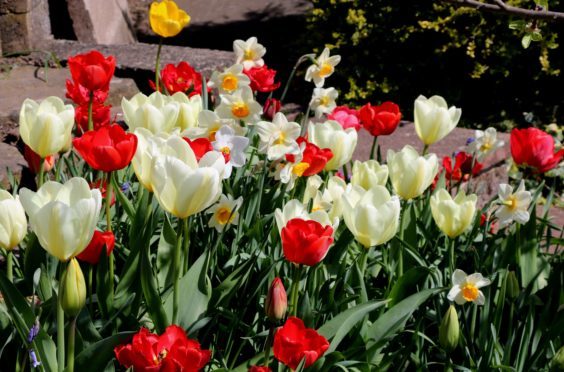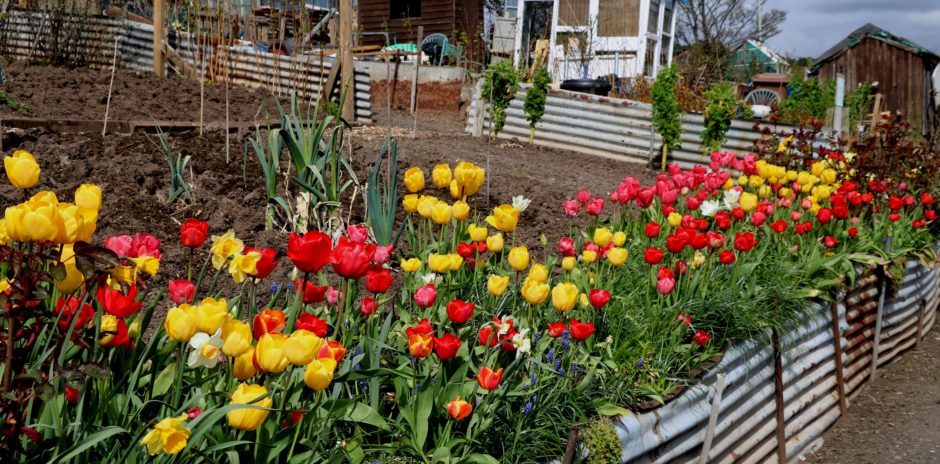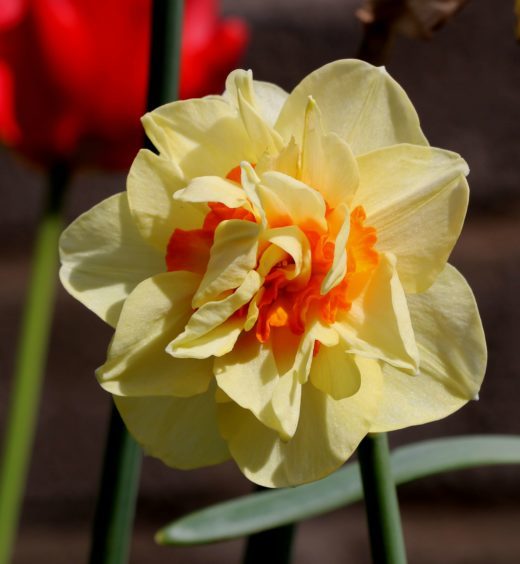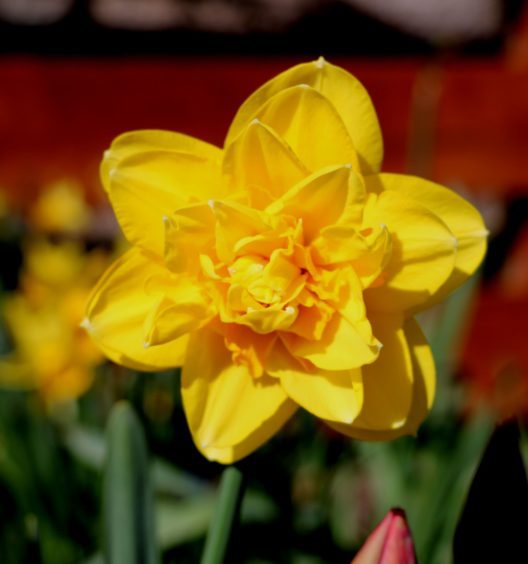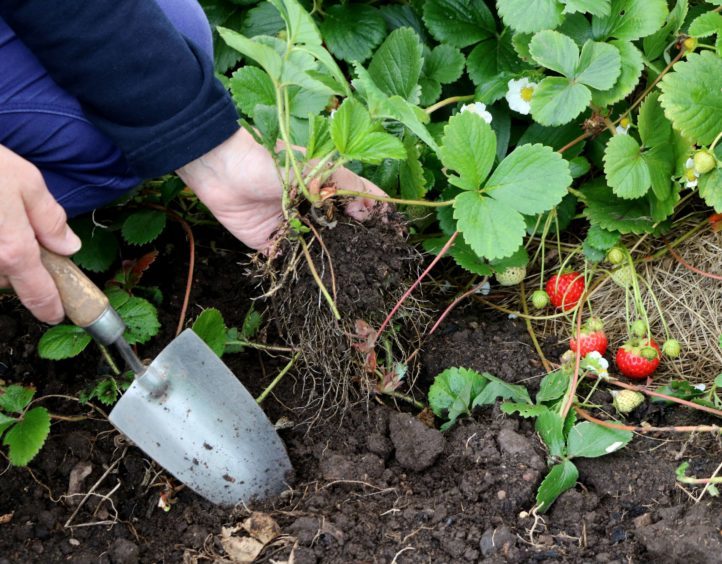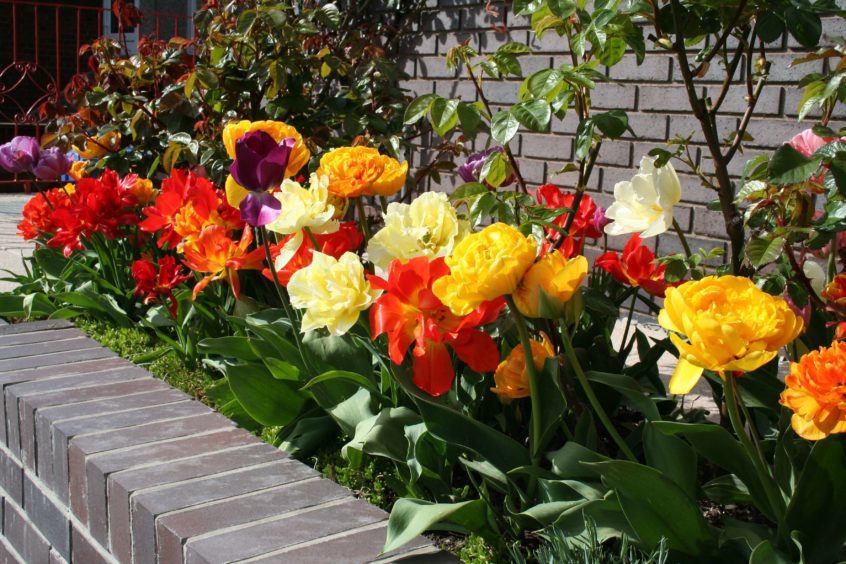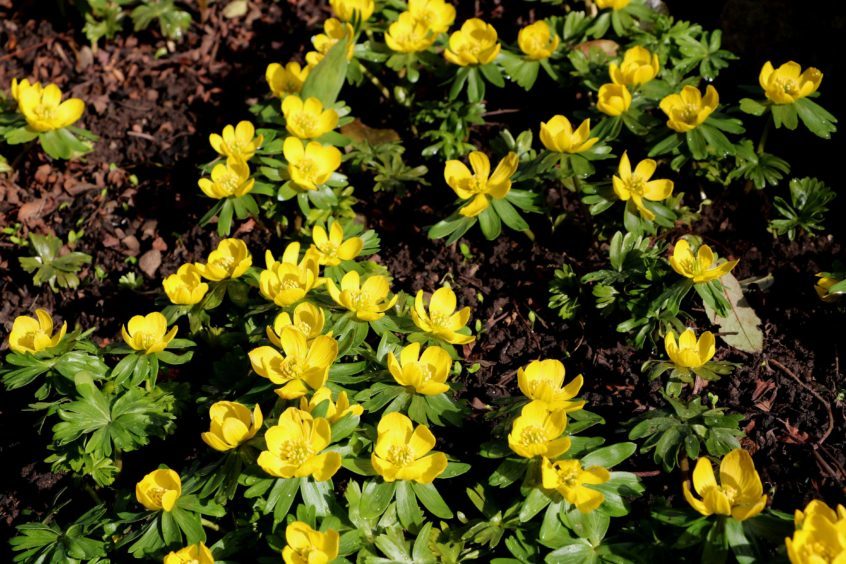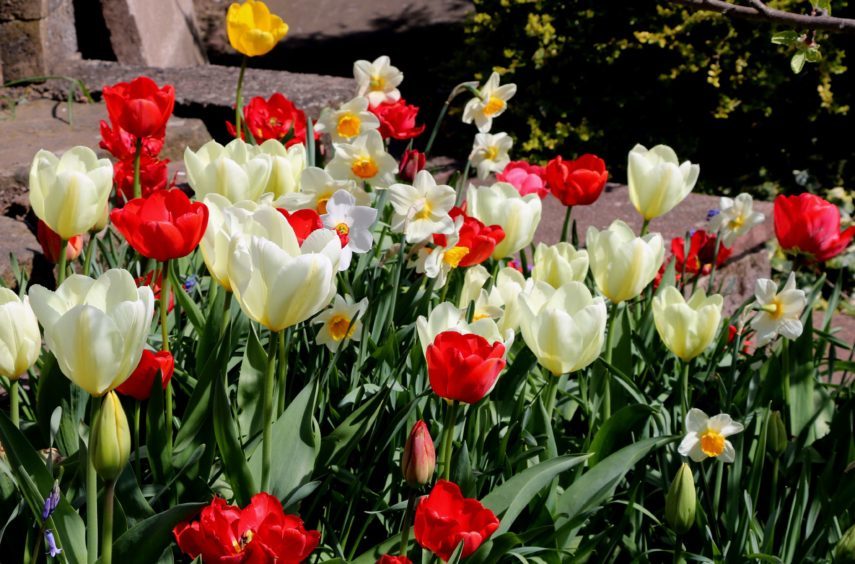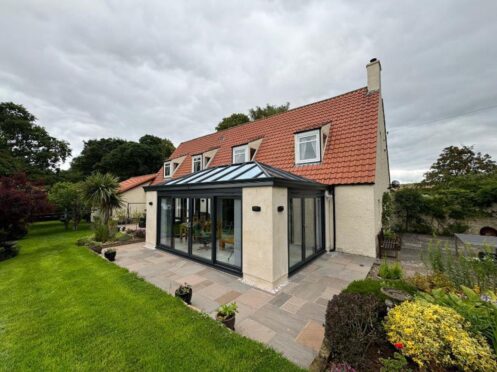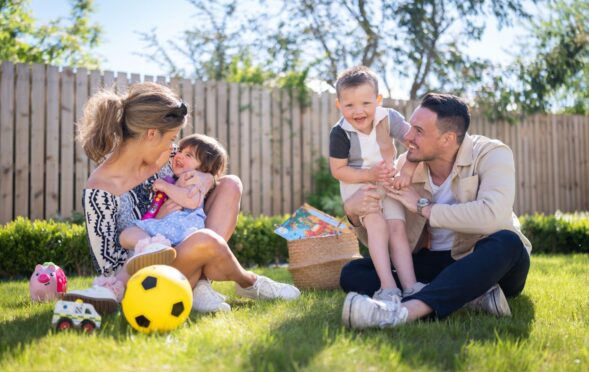As one growing season ends, it’s time to think of the next one as John Stoa plants his spring bulbs.
As summer draws to a close the display of bedding plants begins to look a bit tired.
Now is the time to look forward to next year’s spring flowers.
The spring this year was wet cool and lacked sun, but this allowed spring flowers to last a long time, giving us the chance to review the show and make plans for the next year.
At the moment my tubs are still flowering as tuberous begonias and geraniums continue to flower well into autumn, but hanging baskets with petunias, impatiens and lobelia are finished.
These will be the first to get planted up with spring flowers, and most likely with pansies.
I had some terrific colours in my mixed pansies so I saved the seed and sowed it in August.
I now have well over a hundred strong plants in cellular trays ready for planting out.
Each hanging basket takes about a dozen plants with six for the top and six inserted around the sides as I hope to achieve a round ball of greenery covered in flowers.
The rest of the pansies can go in other tubs and flower borders as well as areas of spare land where shrubs have been removed.
One Ceanothus was fine for nearly twenty years, but then started to die off so it got removed.
The pansies will give us flowers while we decide what to replace it with.
Last year we bought some really good polyanthus which got lined out once their spring display finished, and now they can be replanted back into some tubs.
I also have a good batch of wallflower grown from seed on my allotment for planting in larger tubs and underplanted with tall tulips.
My favourite tulips are the Darwin Hybrids Apeldoorn (red) and Golden Apeldoorn (yellow) but another border above a wall will get the tall Fosteriana tulips Red Emperor and the white scented Purissima.
This border is also planted with tall scented Oriental Lilies flowering in mid summer.
We keep the soil bare, remove the old tulip leaves six weeks after flowering then sow some fast growing annuals such as Candytuft, Cornflower, Godetia to grow underneath the taller lilies.
More lilies are also planned for a summer display of large scented blooms amongst the Cornus in my coloured stem winter border.
This border is attractive from autumn till the end of March when I then cut back all the shrubs to ground level.
This gives the drifts of crocus space to flower followed by tulips before the Cornus starts to grow again.
However there is a lack of interest in summer so a batch of the tall Oriental Lilies will get planted in this border.
Up on my allotment I keep a flower border at the front to add colour and impact and detract the eye from the rest of the plot just in case there may be an odd weed that has escaped my attention.
This has been known to happen from time to time.
Last spring there was a brilliant display of tulips, but very few white ones so I will buy some of the Fosteriana Purissima and plant these into the border.
This border starts with snowdrops, then the yellow aconites and some narcissus ahead of the main tulip display.
This year I will plant up the border with my spare pansy seedling plants to accompany the tulips to give two levels of flowering plants.
Over the years I have added Crocus all over the garden and allotment front border, so no need for any more, but they are perfect amongst tubs of pansies and polyanthus.
Then after flowering I can always manage to find a spot to plant them out for future spring flowers. The herbaceous border is always a favourite for spare bulbs as the permanent plants are slow to grow by which time the dwarf bulbs have flowered, produced their leaves before the herbaceous plants need more space.
Drifts of daffodils and narcissus make a great show amongst deciduous trees and shrubs and although the garden is not short of these, you always find another variety well worth trying out. Growers can always breed something different to catch your eye.
Last year it was Westward, Sir Winston Churchill, Dick Wilden and Replete, and this year it is White Lion, My Story and Decoy.
Wee jobs to do this week
Plant strawberry plants from runners taken from older but healthy beds.
As they will be down for three years dig over the soil before planting and incorporate compost to feed the growing crop.
Space plants out at a foot apart in rows three feet apart to allow for easy picking and give new runners a chance to grow along the row as these young plants will give extra crops.
